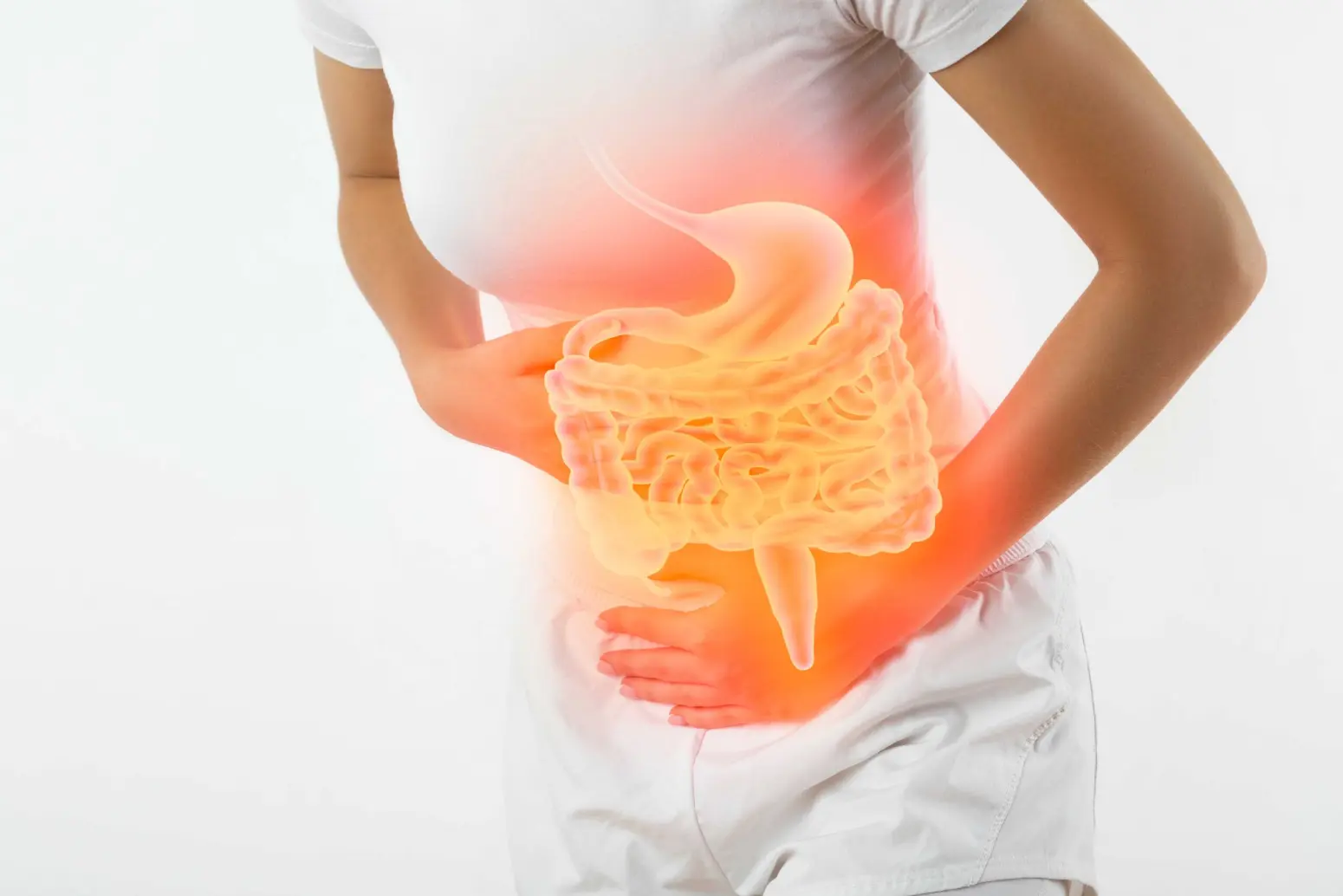
What causes Irritable Bowel Syndrome (IBS)? Many people are asking this question, including those with IBS and professionals like you trying to provide clarity to your patients.
IBS is a persistent condition targeting the large intestine, with symptoms ranging from abdominal pain and cramps to bloating and fluctuating bowel movements. Remarkably, about one in five Australians encounter IBS symptoms during their lifetime.
Whilst the exact causes of IBS are still unknown, its impact on everyday life is profound. Could it be closely tied to one’s diet or emotional well-being? In this article, we’ll dive deep into the primary contributors to IBS, striving to provide a more transparent understanding of this common condition.
A comprehensive evaluation is essential for a definitive IBS diagnosis for patients with gastrointestinal discomfort. Here’s a systematic approach for health professionals:
Medical history and physical examination – Begin by obtaining a detailed medical history followed by a thorough physical examination.
Symptomatic inquiry – Key questions to consider include:
• Is there pain associated with bowel movements?
• Are there observable alterations in stool appearance?
• How frequent are the reported IBS symptoms?
• When did the symptoms initiate?
• Are there any medications currently being administered to the patient?
• Has the patient experienced a recent illness or significant stressors?
Supplementary tests – Additional tests may be necessary to differentiate IBS from other gastrointestinal conditions depending on the symptomatic profile. Blood tests, stool analyses, and X-rays can be useful in ruling out diseases with overlapping symptoms.
Healthcare professionals can accurately identify IBS and recommend the most effective management strategies by ensuring a comprehensive diagnostic approach.
The exact cause of IBS is not definitively known, but several factors seem to play a role:
• Sensitivity – Some people might have intestines that react more strongly to certain IBS triggers than others.
• Muscle movement – In people with IBS, the muscles in the intestines can sometimes respond more actively to stimuli like eating or specific foods.
• Hormonal factors – Some women with IBS report increased symptoms during their menstrual cycle, suggesting a potential link between reproductive hormones and IBS.
• Diet – Certain foods have been observed to trigger or worsen IBS symptoms for some people. Foods rich in FODMAPs are one common example.
• Stress – For many with IBS, stress can exacerbate symptoms. This doesn’t mean stress directly causes IBS but can heighten its impact
IBS episodes are unpredictable, often coming on suddenly. Common triggers for IBS include consuming certain foods or meals, leading to the intensification of symptoms. The typical IBS flare-up might last anywhere from two to four days, but these episodes vary widely.
Some people experience symptoms for only a few hours; in more prolonged cases, symptoms can persist for several months. It’s essential to recognise that every individual’s experience with IBS is unique, and durations of flare-ups can vary considerably based on a combination of dietary, stress, and other personal factors.

While understanding what causes IBS is crucial, it’s equally important to know when to seek professional medical advice. While IBS is not life-threatening, some symptoms can overlap with more severe health conditions, including colon cancer.
It’s imperative to seek medical attention for symptoms that are out of the ordinary or cause significant concern, such as:
• Unexplained weight loss
• Experiencing diarrhoea during nighttime hours
• Signs of rectal bleeding
• Developing iron deficiency anemia
• Episodes of unanticipated vomiting
• Persistent pain that doesn’t alleviate after passing gas or having a bowel movement
Given the uncertainty of what causes Irritable Bowel Syndrome (IBS), medical strategies often focus on alleviating the symptoms. Effective management may involve a mix of the following:
Dietary adjustments – Individual food responses can vary, so there isn’t a one-size-fits all diet for IBS. There are, however, some general recommendations:
• Limiting stimulants like caffeine, tea, and certain fruit juices
• Cutting down on sugary drinks and those containing sugar alcohols like xylitol and sorbitol
• Reducing fatty food intake
• Exercising caution with dairy, considering alternatives like lactose-free products
• Minimising gas-inducing foods such as beans and cabbage
• Gradually incorporate more fibre, though being wary as it can sometimes exacerbate bloating
If these changes prove ineffective, consultation with a registered dietitian may be beneficial, especially regarding the Low FODMAP Diet.
• Medications – Doctors might prescribe specific medicines tailored to an individual’s IBS symptoms.
• Lifestyle practices – Engaging in regular exercise and ensuring sound sleep can potentially diminish anxiety and, subsequently, bowel-related issues.
• Therapeutic approaches – Psychological therapies can equip individuals with stress-coping techniques. Additionally, anti-anxiety medications might be beneficial for some in reducing IBS symptoms.

For health professionals guiding patients with IBS, understanding the intricacies of dietary influences is essential. One dietary approach gaining traction in managing IBS is the Low FODMAP Diet.
FODMAPs, which stands for Fermentable Oligosaccharides, Disaccharides, Monosaccharides, and Polyols, are a group of carbohydrates and specific sugars that some patients find challenging to digest. Common sources include:
• Fruits such as apples, apricots, watermelons, mangoes, and pears
• Vegetables like garlic, lentils, mushrooms, onions, beans, and cabbage
• Dairy products, notably milk, yoghurt, and ice cream
• Grains containing wheat or rye
• Sweeteners, including honey and high-fructose corn syrup, along with certain artificial variants
Professionals may observe that patients react differently to these foods: some might experience aggravated IBS symptoms with one food and not another. Collaborating with a FODMAP dietitian can offer invaluable insights if a patient considers dietary interventions. Their expertise can help determine the suitability and application of a Low FODMAP Diet for individual patients, ensuring a nuanced and personalised approach to dietary management.
• IBS primarily targets the lower gastrointestinal (GI) tract, encompassing both the small and large intestines (colon).
• It’s a persistent, chronic condition that patients may grapple with over extended periods.
• The underlying causes of Irritable Bowel Syndrome remain somewhat elusive. Multiple factors might come into play, varying from one individual to another.
• When examining patients with IBS, their colon typically appears normal, but its functional behaviour deviates from the standard.
• Diet and emotional stress rank high on the list of factors that can exacerbate IBS symptoms.
• A multi-faceted approach to treatment often proves beneficial, which can involve dietary modifications and appropriate medication.
Irritable Bowel Syndrome (IBS) affects a significant portion of the population, leading many to ask, “What causes irritable bowel syndrome?” IBS has no exact cause, but dietary triggers, emotional stress, hormonal fluctuations, and intestinal sensitivity are contributing factors.
Various IBS management techniques, from dietary adjustments to medications, are also available, with the Low FODMAP Diet emerging as a prominent dietary intervention. Given the unique symptom experiences of each individual, a comprehensive and tailored approach to diagnosis and treatment is paramount.
Are you seeking to expand your dietetics, nutrition, general medicine, or gastroenterology expertise? Do you want to learn more about IBS and the benefits of the Low FODMAP Diet?
Check out our fodmap course at the FODMAP Institute: IBS Management: The Low FODMAP Diet. This online course offers insights from leading gastroenterologists and FODMAP dietitians. It’s self-paced and designed for a thorough 10–12-hour learning experience.
Do you have questions about our FODMAP course? Contact us at +61398457155 or email info@giinstitute.com.